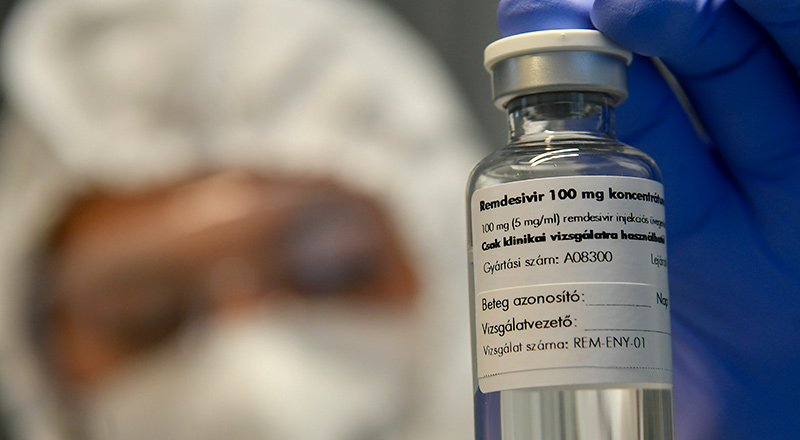
[ad_1]
The largest international study to date of some drugs to treat COVID-19, the disease caused by the coronavirus, found that remdesivir does not reduce the fatality rate among patients. The research, supported by the World Health Organization (WHO) and conducted in more than 11,000 people in some thirty countries, raises more questions about the usefulness of the drug, initially considered useful for the treatment of patients with severe symptoms. Study data has been available in the last few hours and is now waiting to be reviewed (Peer Review), before being published in a scientific journal.
The research was carried out as part of “Solidarity,” the series of tests initiated by the WHO to assess the effectiveness of treatments for severe cases of COVID-19. The analysis involved patients admitted to 405 hospitals around the world who had received at least one of these drugs: remdesivir, hydroxychloroquine, lopinavir, and interferon. Overall, the study involved 11,300 people, including 4,100 patients who did not receive any of these drugs during their illness.
The researchers found that none of the four drugs, administered individually or in combination, led to a reduction in case fatality. The same drugs also did not reduce hospitalization times or reduce the risk of intubation, compared to patients who did not receive any drugs.
The results confirm the doubts raised in recent months about hydroxychloroquine and lopinavir, while offering new insights into remdesivir, initially considered a promising resource for the treatment of COVID-19 cases.
Remdesivir is a newly introduced antiviral drug developed by the pharmaceutical company Gilead in the years of the Ebola epidemic in West Africa between 2013 and 2016. Their trial had led to seemingly encouraging results, but its use on the larger scale against Ebola revealed little effectiveness compared to other solutions. The drug has also been tested to treat some cases of SARS and MERS, respiratory syndromes caused by other coronaviruses, with acceptable results.
As the word suggests, an antiviral is used to slow down the rate at which viruses replicate within an organism, giving the immune system more opportunities to fight infection. Medications of this type are quite powerful and can have side effects, so they must be administered under the close supervision of doctors.
Last May, the Food and Drug Administration (FDA), the US federal agency that deals with drugs, had authorized the use of remdesivir in patients with COVID-19 under an emergency procedure, after one study found a reduction (albeit modest) in healing times for patients with severe symptoms. In August, the FDA also approved the use of remdesivir for all hospitalized patients, regardless of the severity of their symptoms.
The decision raised some doubts from the experts, especially since remdesivir did not reveal, however, a reduction in the lethality of the disease among treated patients. In the United States, a single treatment costs about $ 3,000.
Gilead commented on the “Solidarity” results, defining them as “heterogeneous” because they are based on data provided by hospitals in countries with very different health systems, in which treatment protocols difficult to compare have been followed. Therefore, according to the company, it is not clear whether reliable conclusions can be drawn from the study.
The results of the new research did not surprise doctors and researchers as much, also because other smaller-scale studies had led to similar indications in recent months. However, more research will be necessary, also because the use of remdesivir in the early stages of the disease has in several cases yielded promising results in reducing symptoms, although it is not yet clear how effectively to prevent their worsening.
[ad_2]